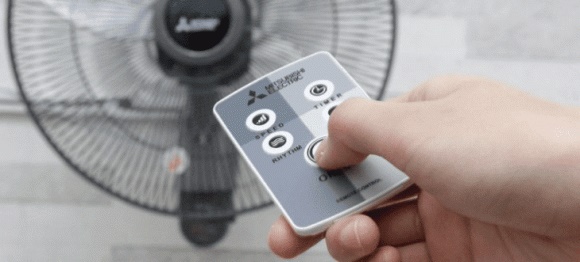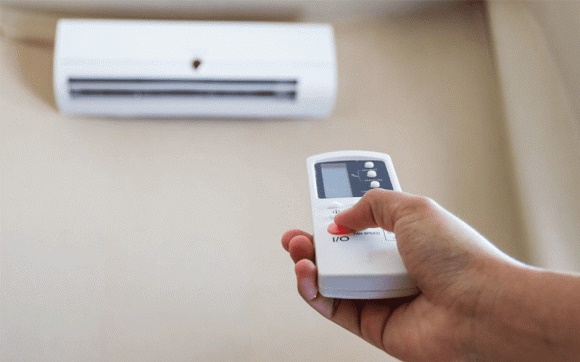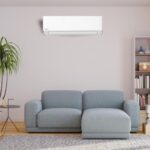Turning on the air conditioner and ceiling fan, or standing fan, makes us feel like we’re “doubling our electricity usage.” However, in reality, this is one of the simplest yet most effective ways to cool down a room while saving energy.

When used together, electric fans help improve the circulation of cold air throughout the room, providing a faster and more comfortable cooling experience. This also means you don’t need to set the temperature too low, thereby saving energy. Additionally, fans use less electricity than air conditioners, so using them in combination can result in significant energy savings.
However, it is recommended to use the fan only for the first 15-20 minutes after turning on the air conditioner. Afterward, if the room is sufficiently cool, turn off the fan to avoid unnecessary energy consumption.
Furthermore, to ensure the efficient and economical use of your air conditioner, keep the following tips in mind:
Choose the Right AC Unit Size for Your Room
Selecting an air conditioner that matches your room size is crucial. An undersized AC unit will struggle to cool a large room, leading to increased energy consumption as it works continuously. On the other hand, an oversized unit for a small room results in wasted energy. Consult with sales staff to choose the most suitable option, helping you save energy and ensuring the longevity of your AC unit.
Keep Doors Closed
When using an air conditioner, keep doors closed to prevent cold air from escaping and outside heat from affecting the indoor temperature. This reduces the workload on your AC unit and saves electricity.

Avoid Frequent On/Off Cycling
Contrary to popular belief, turning the air conditioner on and off repeatedly is not an effective way to save energy. Doing so increases energy consumption due to the frequent startup process and can lead to premature wear and tear on the unit.
Regular Maintenance and Cleaning
For optimal performance, regular maintenance and cleaning of your air conditioner are essential. Simply cleaning the dust accumulated in the filter can reduce the unit’s power consumption by up to 15%, resulting in significant energy savings. Additionally, address any issues or malfunctions promptly to ensure efficient operation and energy savings.
Prevent Direct Sunlight from Entering the Room
Minimize heat exchange with the outdoors by preventing direct sunlight from entering the room. Sunlight can increase the indoor temperature, causing the air conditioner to work harder. On the other hand, blocking sunlight by drawing the curtains can help maintain a cooler temperature, reducing the need for continuous AC operation and energy consumption.
According to Công lý và xã hội
Is Air Conditioning an Effective Way to Dry Clothes?
The answer is a resounding no. While it may be tempting to speed up the drying process of your laundry by placing it near an air conditioner, the high temperatures emitted by the compressor can cause significant damage to the fabric. The intense heat can degrade the fabric’s structure, leaving your clothes and linens stiff and prone to premature wear and tear.
The Air Conditioner Conundrum: Why the “4 Don’ts and 3 Do’s” Rule is a Must for Buyers
“Through trial and error, I’ve learned the hard way that you can’t always trust the salesperson’s pitch when it comes to air conditioners. Over time, I’ve had to replace three units due to my inexperience. From now on, I’ll be following the “4 No-Buys and 3 Must-Buys” rule when purchasing air conditioners to ensure I make the right choice.”



































